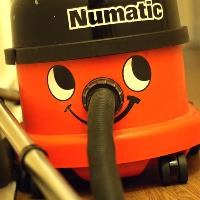(BRUSSELS) – Vacuum cleaners sold in Europe are to be more cost- and energy-efficient, as a result of EU rules which outlaw new vacuum cleaners using more than 900 watts and emitting more than 80 decibels.
Updated ecodesign requirements will lower appliances’ maximum power, annual energy consumption and noise levels.
The European Commission says it is is making use of latest state-of-the-art technologies to ensure that European consumers have the most energy efficient products available. They will also increase their minimum ability to pick up dust.
The updated rules will result in vacuum cleaners that use less energy for a better cleaning performance, says the EU executive. This will help consumers save money, as switching to a more efficient product can save EUR 70 over its lifetime.
For Europe as a whole, more efficient vacuum cleaners will put it in a position to save up to 20 TWh of electricity per year by 2020. This is equivalent to the annual household electricity consumption of Belgium. It also means over 6 million tonnes of CO2 will not be emitted about the annual emissions of eight medium-sized power plants.
Floor polishers, robot vacuums, mattress cleaners, and hand-held and battery operated vacuum cleaners are excluded from these regulations.
Updated rules for energy labelling, published today, introduce a new, simpler scale for appliances from A (most efficient) to G (least efficient) will gradually be introduced, and consumers will be able to consult a product information database.
From September 2017, the most efficient vacuum cleaners will carry a label of A+++. These ratings take into account the vacuum cleaners’ total power and how efficiently that power is used to pick up dust.
EU ecodesign regulation for vacuum cleaners
EU energy labelling regulation for vacuum cleaners



